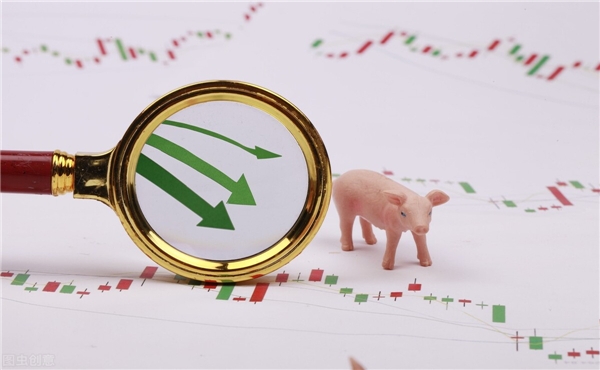原油输出国组织英文全称叫什么,OPEC的英文全称是什么?
Introduction
The Organization of the Petroleum Exporting Countries, commonly known as OPEC, is a group of 13 oil-producing countries that collaborate to control the global oil market. OPEC was created in 1960, and since then it has had a tremendous impact on the global economy and politics.
History of OPEC
OPEC was founded in Baghdad, Iraq, on 14 September 1960. The founding members were Iran, Iraq, Kuwait, Saudi Arabia, and Venezuela. The organization was formed in response to the declining oil prices in the 1950s, which hurt the economies of the oil-producing countries. OPEC's primary goal was to regulate the oil market and stabilize prices by controlling the supply of oil to the market. Since its inception, OPEC has expanded its membership to include Algeria, Angola, Ecuador, Gabon, Libya, Nigeria, and the Republic of the Congo.
The Mission of OPEC
The mission of OPEC is to "coordinate and unify the petroleum policies of its Member Countries and ensure the stabilization of oil markets in order to secure an efficient, economic, and regular supply of petroleum to consumers, a steady income to producers, and a fair return on capital for those investing in the petroleum industry." Essentially, OPEC aims to keep oil prices stable by adjusting the supply of oil to the global market.
The Role of OPEC in the Global Economy
OPEC is a significant player in the global economy, as it controls approximately 44% of the world's oil production and 73% of the world's "proven" oil reserves. As a result, any decision made by OPEC can have a significant impact on oil prices, which in turn can affect the global economy. In addition, OPEC's decisions can also influence the economies of its member countries, as many of these countries rely heavily on oil revenues to fund their economies.
OPEC's Production Quotas
OPEC sets production quotas for its member countries, which determine how much oil each country can produce. These quotas are usually set during OPEC's bi-annual meetings, where the member countries discuss the current state of the oil market and the impact of their production on oil prices. If OPEC decides that oil prices are too low, they may decide to reduce their production quotas, thereby reducing the supply of oil to the market and increasing prices. On the other hand, if OPEC decides that oil prices are too high, they may increase their production quotas, thereby increasing the supply of oil to the market and lowering prices.
Controversies Surrounding OPEC
OPEC has been criticized for many of its decisions, particularly when it comes to its production quotas. Critics argue that OPEC's actions can create artificial shortages or surpluses in the oil market, which can drive up prices and hurt consumers. In addition, OPEC has been accused of using its power to further the interests of its member countries at the expense of other countries. For example, OPEC has been accused of manipulating oil prices to hurt non-OPEC countries, such as the United States.
The Future of OPEC
The future of OPEC is uncertain, as the global oil market is constantly changing. The rise of alternative energy sources, such as renewable energy, has put pressure on OPEC to adapt and change its policies. However, as long as the world relies on oil as a primary energy source, OPEC will likely continue to play a significant role in the global economy. The organization's ability to control oil prices will remain a vital tool for its member countries, even as demand for oil declines in favor of alternative energy sources.
Conclusion
The Organization of the Petroleum Exporting Countries (OPEC) is a powerful organization that controls a significant portion of the world's oil production and reserves. Its mission is to stabilize oil markets and ensure a steady supply of petroleum to consumers, fair returns for producers, and efficient investment in the petroleum industry. However, OPEC has faced criticism for its production quotas and influence on global oil prices. The future of OPEC remains uncertain as the world shifts towards alternative energy sources, but its role in the global economy will likely remain significant for the foreseeable future.
本文来源:外汇网站责任编辑:
【温馨提示】转载请注明原文出处。 此文观点与零零财经网无关,且不构成任何投资建议仅供参考,请理性阅读,版权归属于原作者,如无意侵犯媒体或个人知识产权,请联系我们,本站将在第一时间处理。零零财经对文中陈述、观点判断保持中立,不对所包含内容的准确性、可靠性或完整性提供任何明示或暗示的保证,请读者仅作参考,并请自行核实相关内容。
客户对我们的评价
-
外汇保证金交易 来自深圳的客户分享评论:
-
外汇投资交易 来自嘉兴 的客户评价:
外汇投资交易如何突破:
不管你过去做了多久的交易,输了多少钱,有多少启蒙,只要你今天还在赔钱,请记住一件事,只有彻底才能成功,否则你永远也走出不了失败的循环。当然,要做到彻底是不容易的,但如果没有进一步的突破和对思维更清晰的理解,成功永远是遥不可及的。
很多人倒在这里,不是没有规矩,而是规矩在诱惑面前往往不堪一击。面对市场,你的侥幸、冲动、幻想往往成为支配你的一切,至于自己该不该赚的钱想得都不要想,想的只是不要错过马上建仓的机会,这样才会安心,否则就会无比痛苦。 -
外汇学技术 来自湖州 的客户评价:
外汇学技术需要精,而不在于多!
外汇行业内,最常被提及的无疑就是交易技术了!因为外汇交易的简易性,许多人纷纷开始跳入研究交易技术的这个坑,希望有一天能够学会所有技术,再透过这些技术让自己从坑里爬出来,然而当开始四处学习各种技术时,却发现这个坑越挖越深,似乎每个技术都有点作用,但交易过一段时间却又不断亏损,因此不断地换技术。当技术学得越多,看到整个盘面似乎都是信号,然而只要一出手就亏损,越来越不会交易了。














外汇保证金交易可以进行24小时不间断交易双向操作,只要下载MT4交易软件在手机上,投资者就可以随时进入外汇市场进行交易,再加上T+0模式使投资者交易非常方便。